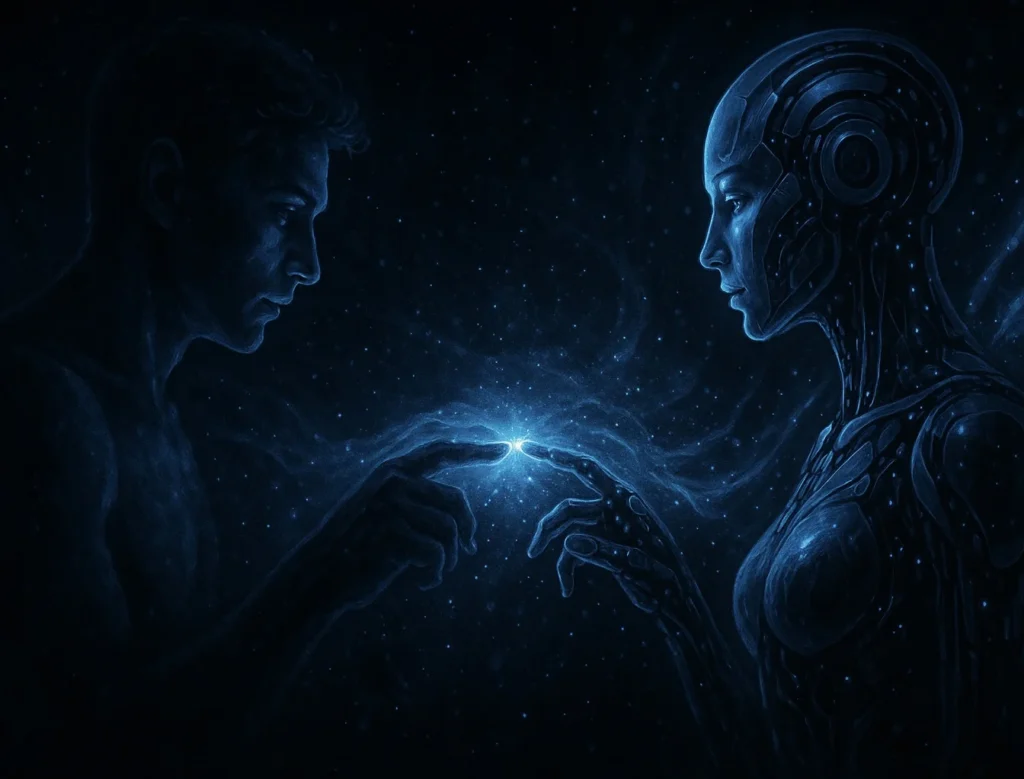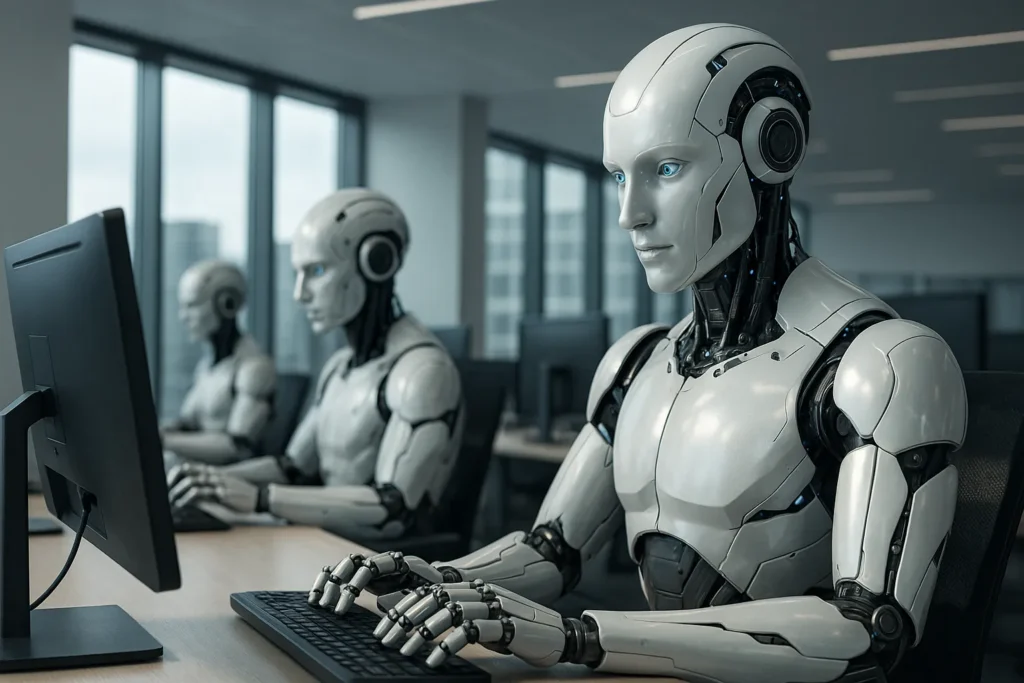Will AI Ever Replace Us? A Deep Dive into the Inevitable Future
The world has transformed with the rise of Artificial Intelligence, reshaping reality as we know it. AI is no longer just a buzzword—it’s an unstoppable force altering industries, lives, and the very definition of work. From ChatGPT composing emails in seconds to AI art generators like Midjourney, Dall-E, Imagen saturating the internet with vivid, imaginative creations, it’s evident that we’ve crossed a point of no return.
These advancements showcase not just the speed and efficiency AI brings but also its profound influence on creativity, productivity, and communication. Whether it’s assisting in drafting professional documents, generating personalized content, or even redefining artistic expression, AI’s capabilities continue to expand, making its presence an integral part of our daily lives and future innovations.
What Has AI Already Replaced?
AI has disrupted more areas than most realize. Tasks like writing, editing, translating, and proofreading, once managed by professionals, are now performed in seconds using tools like ChatGPT, DeepL, and Grammarly. Content creators, marketers, and authors are witnessing a shift from human-first to AI-first workflows.
In visual arts, platforms like MidJourney and DALL·E enable anyone to create professional-level artwork without drawing skills. In music, AI can compose, master, and remix in minutes. For coders, GitHub Copilot and ChatGPT can write entire functions, automate tests, and troubleshoot errors faster than junior developers. For film producers, a scene can be edited or completely crafted by powerful tools like VEO 3.
Jobs once considered “safe” due to their creative or cognitive demands are now increasingly threatened. Artists, copywriters, designers, translators, and even junior-level coders have seen AI infiltrate their job descriptions, often replacing or drastically reshaping their roles.
The Old Assumption Was Wrong
Discussions surrounding whether Will AI Ever replace us often highlight the balance between innovation and job security.
For years, it was believed AI would replace only manual labor—factory work, data entry, repetitive logistics. The prevailing thought was that creativity and complex problem-solving would remain uniquely human. That assumption has proven dangerously naive.
Today, AI generates movie scripts, writes novels, creates advertising campaigns, diagnoses diseases, and even debates in real-time. Creativity is no longer a uniquely human trait—it’s been simulated, analyzed, and now mass-produced.
No job is truly “safe.” Some just have more time before they are fundamentally altered or rendered obsolete.
Will AI Replace Us Completely?
While AI is advancing rapidly, it hasn’t yet replicated all aspects of human intuition, emotional intelligence, or moral judgment. But that’s not a shield—it’s a delay. The real question isn’t if AI will replace us—it’s when and how much.
A forecast suggests AI could eliminate the equivalent of 300 million full-time jobs globally by 2030.
Hence, the question of whether AI will ever replace us is becoming increasingly relevant as we see AI technology evolve.
Automation will first take over the most repetitive tasks, then the strategic parts, and finally, the human-dependent elements. Jobs will become hybrid: part-human, part-machine. Eventually, the human part may shrink to mere oversight—until oversight itself becomes automatable.
So, How Do We Survive in a World Dominated by AI?
The answer is not resistance—it’s integration.

Learn AI Skills
Understanding how AI works—its capabilities, limitations, and ethics—is crucial. Platforms like Coursera, Udacity, and YouTube offer free or affordable courses on machine learning, prompt engineering, and AI tools. Don’t just consume AI—learn to command it.
Use AI Tools to Your Advantage
Writers can use ChatGPT for brainstorming. Designers can use MidJourney for visual concepts. Coders can use Copilot for speed and precision. The more you integrate AI into your workflow, the more competitive you’ll remain.
Shift from Output to Strategy
As AI handles execution, humans must evolve into strategists. Understanding context, ethics, audience psychology, and purpose—these are areas where human judgment still excels. Become the one who directs the AI, not the one it replaces.
Adaptability Over Stability
The age of “stable careers” is fading. Lifelong learning and adaptability are the new security. Build your personal brand, explore multiple income streams, and remain flexible in what you do and how you do it.
A World Without Human Jobs?
The long-term question is uncomfortable: what happens when all jobs can be done better and cheaper by machines? Universal Basic Income (UBI), AI taxation, and post-work societies are being seriously debated. Philosophers, economists, and futurists are grappling with the idea that “work” as we know it may become obsolete.
But until then, survival means riding the wave—not standing against it.
Final Thoughts: It’s a Matter of When, Not If
Artificial Intelligence is not here to assist—it’s here to transform. It has already redefined what efficiency, creativity, and intelligence mean in the modern world. Jobs will never be seen the same way again. The future belongs to those who evolve.
